#just pro-Katara
Text
Katara's Story Is A Tragedy and It's Not An Accident
I was a teenaged girl when Avatar: The Last Airbender aired on Nickelodeon—the group that the show’s creators unintentionally hit while they were aiming for the younger, maler demographic. Nevermind that we’re the reason the show’s popularity caught fire and has endured for two decades; we weren’t the audience Mike and Bryan wanted. And by golly, were they going to make sure we knew it. They’ve been making sure we know it with every snide comment and addendum they’ve made to the story for the last twenty years.
For many of us girls who were raised in the nineties and aughts, Katara was a breath of fresh air—a rare opportunity in a media market saturated with boys having grand adventures to see a young woman having her own adventure and expressing the same fears and frustrations we were often made to feel.
We were told that we could be anything we wanted to be. That we were strong and smart and brimming with potential. That we were just as capable as the boys. That we were our brothers’ equals. But we were also told to wash dishes and fold laundry and tidy around the house while our brothers played outside. We were ignored when our male classmates picked teams for kickball and told to go play with the girls on the swings—the same girls we were taught to deride if we wanted to be taken seriously. We were lectured for the same immaturity that was expected of boys our age and older, and we were told to do better while also being told, “Boys will be boys.” Despite all the platitudes about equality and power, we saw our mothers straining under the weight of carrying both full-time careers and unequally divided family responsibilities. We sensed that we were being groomed for the same future.
And we saw ourselves in Katara.
Katara begins as a parentified teenaged girl: forced to take on responsibility for the daily care of people around her—including male figures who are capable of looking after themselves but are allowed to be immature enough to foist such labor onto her. She does thankless work for people who take her contributions for granted. She’s belittled by people who love her, but don’t understand her. She’s isolated from the world and denied opportunities to improve her talents. She's told what emotions she's allowed to feel and when to feel them. In essence, she was living our real-world fear: being trapped in someone else’s narrow, stultifying definition of femininity and motherhood.
Then we watched Katara go through an incredible journey of self-determination and empowerment. Katara goes from being a powerless, fearful victim to being a protector, healer, advocate, and liberator to others who can’t do those things for themselves (a much truer and more fulfilling definition of nurturing and motherhood). It’s necessary in Katara’s growth cycle that she does this for others first because that is the realm she knows. She is given increasingly significant opportunities to speak up and fight on behalf of others, and that allows her to build those advocacy muscles gradually. But she still holds back her own emotional pain because everyone that she attempts to express such things to proves they either don't want to deal with it or they only want to manipulate her feelings for their own purposes.
Katara continues to do much of the work we think of as traditionally maternal on behalf of her friends and family over the course of the story, but we do see that scale gradually shift. Sokka takes on more responsibility for managing the group’s supplies, and everyone helps around camp, but Katara continues to be the manager of everyone else’s emotions while simultaneously punching down her own. The scales finally seem to tip when Zuko joins the group. With Zuko, we see someone working alongside Katara doing the same tasks she is doing around camp for the first time. Zuko is also the only person who never expects anything of her and whose emotions she never has to manage because he’s actually more emotionally stable and mature than she is by that point. And then, Katara’s arc culminates in her finally getting the chance to fully seize her power, rewrite the story of the traumatic event that cast her into the role of parentified child, be her own protector, and freely express everything she’s kept locked away for the sake of letting everyone else feel comfortable around her. Then she fights alongside an equal partner she knows she can trust and depend on through the story's climax. And for the first time since her mother’s death, the girl who gives and gives and gives while getting nothing back watches someone sacrifice everything for her. But this time, she’s able to change the ending because her power is fully realized. The cycle was officially broken.
Katara’s character arc was catharsis at every step. If Katara could break the mold and recreate the ideas of womanhood and motherhood in her own image, so could we. We could be powerful. We could care for ourselves AND others when they need us—instead of caring for everyone all the time at our own expense. We could have balanced partnerships with give and take going both ways (“Tui and La, push and pull”), rather than the, “I give, they take,” model we were conditioned to expect. We could fight for and determine our own destiny—after all, wasn’t destiny a core theme of the story?
Yes. Destiny was the theme. But the lesson was that Katara didn’t get to determine hers.
After Katara achieves her victory and completes her arc, the narrative steps in and smacks her back down to where she started. For reasons that are never explained or justified, Katara rewards the hero by giving into his romantic advances even though he has invalidated her emotions, violated her boundaries, lashed out at her for slights against him she never committed, idealized a false idol of her then browbeat her when she deviated from his narrative, and forced her to carry his emotions and put herself in danger when he willingly fails to control himself—even though he never apologizes, never learns his lesson, and never shows any inclination to do better.
And do better he does not.
The more we dared to voice our own opinions on a character that was clearly meant to represent us, the more Mike and Bryan punished Katara for it.
Throughout the comics, Katara makes herself smaller and smaller and forfeits all rights to personal actualization and satisfaction in her relationship. She punches her feelings down when her partner neglects her and cries alone as he shows more affection and concern for literally every other girl’s feelings than hers. She becomes cowed by his outbursts and threats of violence. Instead of rising with the moon or resting in the warmth of the sun, she learns to stay in his shadow. She gives up her silly childish dreams of rebuilding her own dying culture’s traditions and advocating for other oppressed groups so that she can fulfill his wishes to rebuild his culture instead—by being his babymaker. Katara gave up everything she cared about and everything she fought to become for the whims of a man-child who never saw her as a person, only a possession.
Then, in her old age, we get to watch the fallout of his neglect—both toward her and her children who did not meet his expectations. By that point, the girl who would never turn her back on anyone who needed her was too far gone to even advocate for her own children in her own home. And even after he’s gone, Katara never dares to define herself again. She remains, for the next twenty-plus years of her life, nothing more than her husband's grieving widow. She was never recognized for her accomplishments, the battles she won, or the people she liberated. Even her own children and grandchildren have all but forgotten her. She ends her story exactly where it began: trapped in someone else’s narrow, stultifying definition of femininity and motherhood.
The story’s theme was destiny, remember? But this story’s target audience was little boys. Zuko gets to determine his own destiny as long as he works hard and earns it. Aang gets his destiny no matter what he does or doesn’t do to earn it. And Katara cannot change the destiny she was assigned by gender at birth, no matter how hard she fights for it or how many times over she earns it.
Katara is Winston Smith, and the year is 1984. It doesn’t matter how hard you fight or what you accomplish, little girl. Big Brother is too big, too strong, and too powerful. You will never escape. You will never be free. Your victories are meaningless. So stay in your place, do what you’re told, and cry quietly so your tears don’t bother people who matter.
I will never get over it. Because I am Katara. And so are my friends, sisters, daughters, and nieces. But I am not content to live in Bryke's world.
I will never turn my back on people who need me. Including me.
#ATLA#Avatar the Last Airbender#Katara#Anti Bryke#Zutara#but not really#just pro-Katara#Anti Kataang
2K notes
·
View notes
Text
I just watched Avatar for the first time all the way through, and yeah, it’s great, but the one thing that surprised me was how different Katara was compared to the fandom interpretation I’d seen and internalized before watching.
Like, before you watch Avatar, you’ve seen all these memes about Katara and her mom, and based on those memes, you assume it’s one of those lines you have to get used to hearing at least once every episode. But then you watch the show and realize that she only talks about her mom maybe five or six times per season and you also realize she only brings her up when she’s trying to comfort someone or empathize with them because that’s how she processes her grief and that’s one way she connects with people.
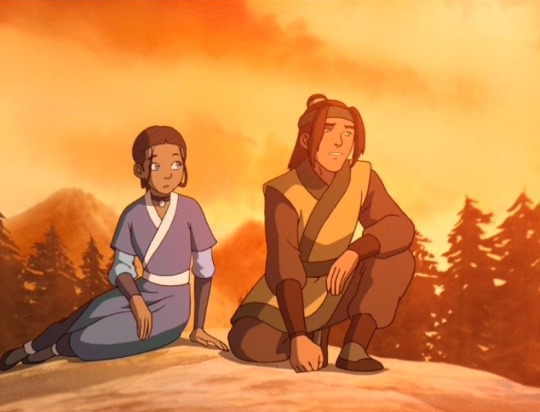
Or you hear the infamous line, “then you didn’t love [our mother] the way I did” and you prepare yourself for one of the worst character assassinations ever only to see the scene after nearly three seasons worth of context and realize she was kinda right. She’s been the mother, the nurturer, the comforter. She’s been patient, gentle, and accommodating where everyone else has gotten to be insensible and reckless and childish, and the one moment where she allows herself to feel her grief, suddenly she’s this evil bitch and not, y’know, a 14 year old girl whose been thrusted into adulthood in a way no other character has. A 14 year old girl who should be allowed immaturity and raw emotion and anger instead of the patience and grace she’s been forced to extend to every character without even the smallest amount of gratitude or even consideration in return.
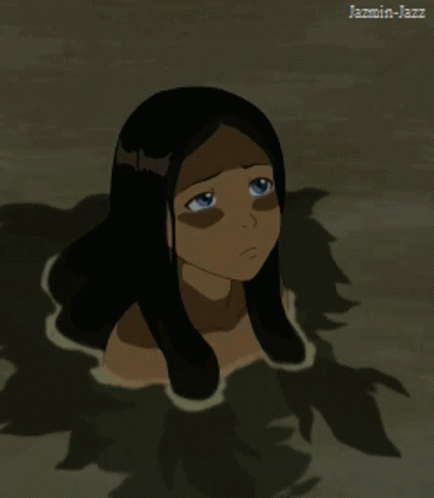
Or you see all of the clips where Katara puts Aang in the “friendzone” and you expect to have this wishy washy back and forth where Aang is putting his feelings out there only to have Katara neither commit nor express any clear reciprocation or rejection. Then you watch and realize that, as cute as the ship is initially, that there’s never a point where Aang returns any comfort or grace to Katara despite her always doing this for him to the point of coddling. That for as much as Aang says he loves her, he never seems to outgrow his perception of her so he can recognize her as someone who feels grief, anger, and pain as much as she expresses love, kindness, and maturity. And instead of having moments where he learns to see her beyond her strength or compassion, you’re instead given moments where Aang forces his feelings onto her, both romantic and non-romantic, and Katara is expected to just…shoulder those feelings the way she shoulders everyone else’s.
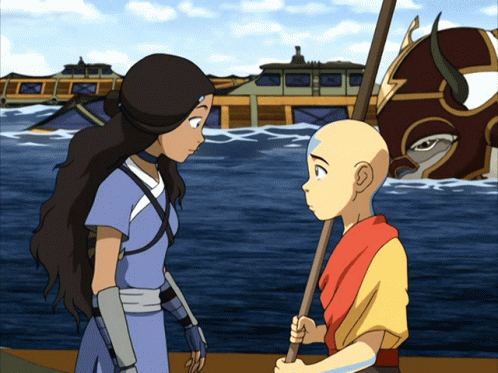
Katara is the most misunderstood character in the show. As much as people recognize the complexities of Zuko, Sokka, and Azula, they struggle to do the same for Katara because they see her struggles as somehow lesser, and therefore, less deserving of sympathy. They can handle her so long as she’s being endlessly patient and loving and kind, but the moment her endless love, patience, and kindness runs out, she’s suddenly this annoying bitch who can’t shut up about her mother or reciprocate Aang’s feelings. But Katara’s trauma does matter as much as anyone else’s. No, she wasn’t banished from her kingdom. No, she didn’t lose her entire community, and no, she isn’t the only one who lost her mother. But the difference between her and everyone else whose experienced loss because of the Fire Nation is that she’s never given time to process her trauma. Aang gets to lean on Katara constantly. Toph gets to express her feelings to Katara, and yeah, Sokka also lost their mother, but unlike Katara, he isn’t put in the position of being a substitute for everyone’s parent. He even admits that he sees his sister as a mother. The only characters who ever comfort Katara or allow her to vent is Zuko and her father and that’s, like, three scenes in a show where the other characters are consistently given opportunities to seek out Katara for unconditional support.
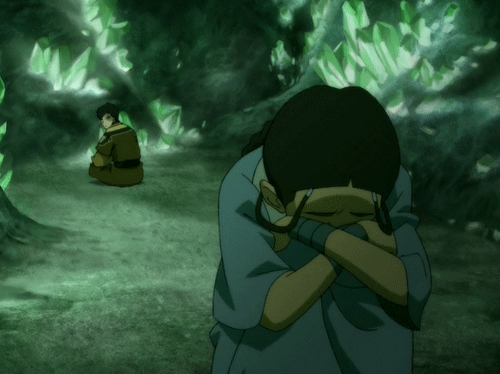
The fandom interpretation of Katara has been so bastardized that even those who haven’t watched the show know her for this fanon version and not for who she is. She’s such an interesting character beyond her fandom limitations, though. She’s brave, hot-headed, and hopeful as well as gentle and caring. She wishes to learn waterbending, not only because she wants to fight in the war, but because she wants to continue her culture’s practices because, and people often forget this, she also lost an entire subculture within her already fractured tribe. And she wants to defeat the Fire Nation both because of her deep love and empathy for other people, but also because she wants to avenge her mother. But because some of the fans have reduced Katara to a bitch who constantly whines about her mother and friendzones Aang, you wouldn’t know any of this, and it sucks because she’s the only character whose been dumbed down to such an extent.
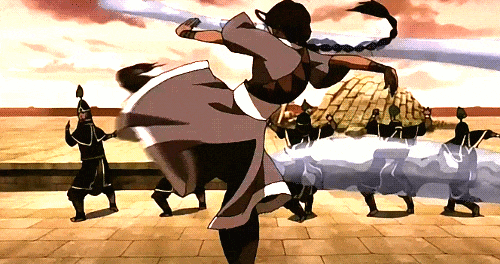
#avatar the last airbender#avatar#katara#you can tell she’s my favorite character#female character#zutara#I’m not anti or pro either#just something I noticed#I’m not against Aang either#just this writing
23K notes
·
View notes
Text
katara is aangs body guard, THE original aang defender. you talk shit about him? she’s there. you try and attack him? she’s there. from the moment he fell from that iceberg into her arms and said “wanna go penguin sledding with me?” katara decided to be by his side till the every end
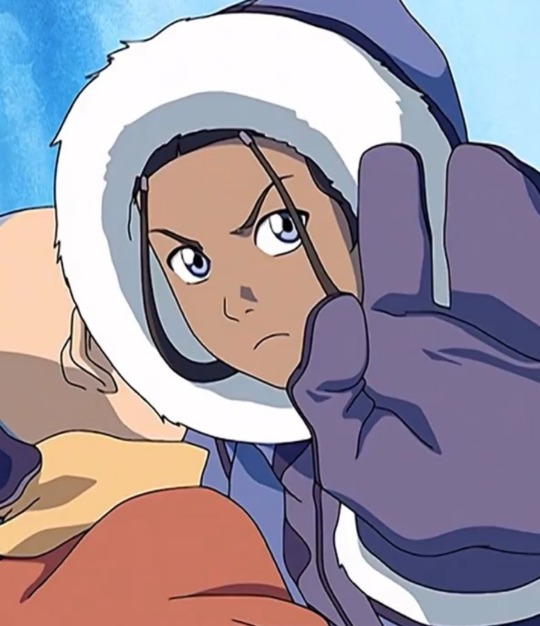
just LOOK at this
#if aang has zero haters it’s becuz katara has ended them all#atla#avatar the last airbender#aang#avatar#kataang#katara#avatar aang#pro kataang#it’s master katara’s and her husband aang who also just so happens to be the avatar
1K notes
·
View notes
Text
the anti-Zutara criticism that “Zutara shippers are teenage girls who only like the ship because they self-insert as Katara” is actually so funny because how does that delegitimize the ship? So…girls who relate to Katara like Zuko, and they think Katara would like Zuko, and that’s bad because…girls are wrong? Girls are shallow? Girls don’t know what’s good for them?
Anyway if I were a grown ass man who created a fictional teenage girl that lots of real teenage girls relate to, and these girls believe she would like character B instead of character A, I hope I’d have the humility to say to myself “hmm I wonder why people who relate to this character’s feelings and motivations think she would react this way” instead of jumping straight to “these girls are doomed to like toxic relationships”
(And I know Zutara shippers like the ship for many different reasons, and self-insert is not the most popular by a long shot, I’m just saying that the criticism of self-insert stems from dismissal of what teenage girls like, and that feels kinda misogynistic to me)
#Zutara#pro Zutara#anti bryke#katara#Anti kataang#not really anti kataang but tagging it just in case#I should tag this “pro teenage girls”#My meta
1K notes
·
View notes
Text
The Avatar fandom is always saying that if we get a continuation after Korra they hope we get to see more complex and flawed characters because atla and lok lacked them
Well I don't want that because y'all can't even handle the ones you were already given
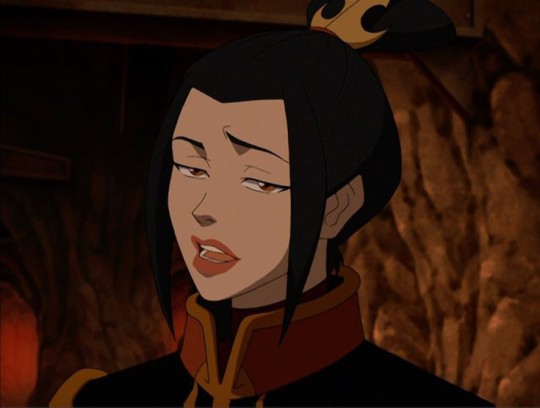

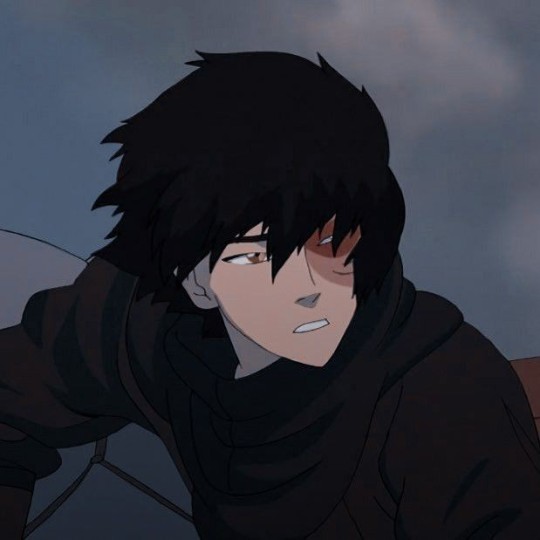
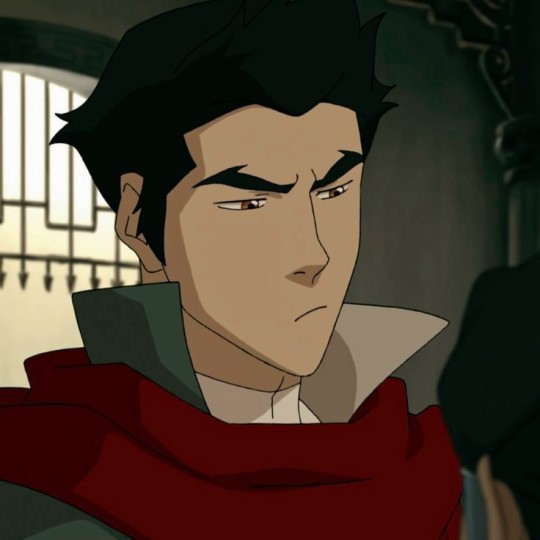
#The way these characters were reduced to only the bad things they did#when there's much more nuance to them#and yes zuko belongs on here because there's a lot of katara and Aang shippers#who try to demonize him just because they hate zutara#atla#avatar the last airbender#zuko#katara#mako#azula#zuko atla#mako lok#legend of Korra#lok#azula atla#katara atla#pro azula#pro Katara#pro zuko#pro mako
561 notes
·
View notes
Text
I don't ship Zutara that much but M*!k0 shippers who call it "colonizer x colonized" actually annoy me so badly 💀they literally undermine Zuko's whole ass arc and growth just bc they dislike Zutara then reduce him to some idiot colonizer as if he never had literally the best growth in the series. His whole arc is about NOT BECOMING a colonizer. How tf are you going to say that just bc you dislike Zutara when his whole arc is about becoming the opposite of a colonizer and even getting full on episodes of him getting Katara's forgiveness. You're literally taking away all of Zuko's growth, suffering, and development. 💀M*!k0 shippers are actually so dumb like why are you even defending that badly written ship lmao
#anti maiko#maiko anti#zuko x mai anti#zutara#analysis#anime#anime analysis#my meta#meta#atla meta#avatar#atla#avatar the last airbender#media literacy#avatar aang#zuko#katara#pro zuko#pro katara#prince zuko#not a big zutara person but seeing maiko shippers call zuko a colonizer just to upscale maiko literally baffles me like are you illiterate
165 notes
·
View notes
Text
"We actually like aang, we just don’t like how he's written."
This line is always followed with *insert made-up bullshit* *insert exaggeration* *insert moment taken out of context*
Nope, you don't like him. You just hate that he ended up with Katara and you hide behind the guise of "i like him, i just don't like how he's written" but you still actively hate him on behalf of a stupid crack ship
Just admit it and move on
#avatar the last airbender#atla#aang#you don't know this character at all#exactly like you don’t know katara#for you all he's just an obstacle#anti zutara stans#pro aang#kataang
156 notes
·
View notes
Text
I don't know why some zutara shippers (heck even non-zutara shippers) make Katara out to be some tsundere type of whatever. That girl is a massive SIMP. If she likes a boy, you bet she's gonna follow him around everywhere, suffocate him with praises, and tell everyone just how great he is.
#anti zutara#antizutara#<< just in case#atla#avatar the last airbender#my post#kataang#📀📀💥#jetara#pro katara#she just like me fr
165 notes
·
View notes
Text
fanfic about katara and aang’s wedding where aang reveals during his vows that he loves katara so much he gave up the avatar state for her. and katara thinks he’s being hyperbolic. but he keeps going. describing in detail how he chose her over cosmic energy. and he’d do it again. and she’s listening, absolutely horrified. thinking about the lives that could have been spared, the people who could have been saved.
#anti kataang#writing prompt#i think#i’m not a writer just a simple woman with ideas that i wish to see#so i out them out into the universe in hopes that it either already exists or someone gets inspired so i can read it#anti aang#pro katara#katara deserved better#anti bryke
84 notes
·
View notes
Text
One thing that bugs me every time i rewatch tlok is that one scene in book 3 where tenzin tells korra about the time when she was little, explaining how the red lotus tried to kidnap her. So, he, korra's father, sokka, and zuko went to rescue her and stopped the attack, locking the red lotus in their respective prisons.
Although my little zukka brain thrives with the fact that zuko is supposedly just there, chilling in the south pole post-retirement or whatever, i really think it would have been much better if insted of him, it was katara the one fighting alogside the others. It would have made so much more sence because one- she is one of the most powerful waterbenders on earth therefore totally has the power and skills to stand againts the red lotus, and two- yes, you can argue that she might still be greeving over her husband's passing but i think if sokka, zuko and tenzin were able to be there and help in the battle it wouldn't be much of problem for katara to be with them too. Aang is best friend and a family to both sokka and zuko and tenzin's literal father. If they were ready and willing to fight, so could she.
And isn't trying to protect korra also trying to protect her family in some sort of way? Katara was clearly very enthusiastic about teaching korra waterbending as a child, why won't she stand up against the red lotus for her, too?
It's disheartening to see how both the comics and tlok seem to sideline katara's character as if her contributions were not significant. Like she just isn't that important in the first place. It’s just awfully depressing tbh.
#begging the upcoming animated gaang movie to not compleatly ignore her charicter#i know shes supposed to be 'second leading role' but im not sure they won't just make her 'the avatar's girlfriend' again like in the comic#honestly im sick of watching katara being portraid as and turned into some type of stereotypical housewife#some of the speculations going around that she could be pregnant in the animated movie does not help one bit with my concerns either#my queen deservs much better#katara#katara atla#katara and aang#katara avatar#tlok#atla#avatar#avatar the last airbender#the legend of korra#brief mention of zukka ig#kataang#legend of korra#korra#atla zuko#fire lord zuko#firelord zuko#atla sokka#sokka#aang#atla aang#avatar aang#tenzin#pro katara
122 notes
·
View notes
Text
I'm on a Kataang kick so let's talk about how Zutara stans are completely wrong when it comes to the whole opposites attract thing. The only thing opposite about Katara and Zuko are their elements and their colors, other than that they are actually very similar. They can both be vindictive and impulsive. And while Aang and Katara are very similar in some ways, they are also opposites.
Katara reminds Aang when it's time to be serious, Aang reminds Katara when it's time to have fun. Kataang keep each other calm and happy, Zutara keeps each other pent up.
The last thing both Zuko and Katara needs is someone else who is quick to anger. I'll compare Zutara to Katniss and Gale and Kataang to Everlark for my fellow hunger games fans.
Idk... Kataang crack post ig. I'll probably post another pro Kataang post later but it'll be less Zutara central.
54 notes
·
View notes
Text
The ATLA fandom is interesting. There's been uproar about Katara's personality changing in the live-action... Besties, don't you think there's a reason why they did that? Maybe due to a certain influx of people bashing Katara every time she breathed in 2020? She was shamed repeatedly for being angry, outspoken, and confrontational. Not to mention how many of you defended her being a docile healer instead of a fighter in LOK (hell, some of you preferred Katara in LOK over Katara in ATLA, don't think I forgot). Why are we backtracking now?
(Yes the live-action could have done better with her. But they were probably trying to appease the people who whined in 2020, which they shouldn't have since this fandom would find something to rage about no matter what)
Istg, Renaissance fans and their performative activism. Again I say, the ATLA Renaissance sucked
#pro katara#katara defense squad#the live action isn't perfect#but some of what you boneheads are bitching about makes no sense#like complaining about aang flying#HE WASN'T FLYING HE WAS MANIPULATING THE AIR AROUND HIM WHICH HE'S DONE MULTIPLE TIMES IN THE SHOW#anti kataang#anti kataang shippers#tagging just in case#i don't need kataang fans here they give me a headache#anti atla renaissance#anti atla fandom#atla live action#anti bryke#they don't really have anything to do with this#but they piss me off too#and they're the ones who screwed katara over in lok in the first place#i'll take la katara over lok katara
89 notes
·
View notes
Text
Friendly reminder that katara is a canon punk and not a "soft girl whos into bad boys UwU 🥺" like bro stop projecting this isn't a Y/N fanfic
#like are we just gonna forget she lead and or inspired multiple rebellions is constantly fighting against system#blew up a whole factory makes fun of the rich want to protect the innocent even if their fire nation and nearly killed a man?#but sure lets just dumb her down to a stereotype cause you just want a shitty YA romance#atla#avatar the last airbender#anti zutara#pro katara#katara#pro kataang#katara of the southern water tribe
99 notes
·
View notes
Text
I saw a thread on twitter (X?) talking about the relation between Zuko's scar and Mai and while it was really interesting to read it, I have some thoughts about it
First and foremost, yeh, the scar OBVIOUSLY holds some symbolism in the storytelling but for me, does not hold the way op talks about.
In the "crossroads of destiny" ep, we see that Katara acknowledges his pain regarding his scar and reaches out to him through it. It was because of that interaction that he begins to really change and see what was wrong and what was right (even tho he doesnt do what's right)
She touches his face so gently....
I really believe that his scar can also symbolize his empathy and desire to do the right thing, because that was the reason he got it in the first place, he spoke up because of an injustice.
#i love zuko#hes a little dear#katara was the first to kinda trust him and see that he wasnt beyond salvation#zutara#pro zutara#pro zuko#i swear I'm not anti kataang#i just don't see them together#atla
103 notes
·
View notes
Text
The tragedy of Katara’s parentification
Sokka and Katara were both parentified, and it’s a profoundly life-changing thing for both of them. One of the saddest things in ATLA, though, is how Sokka sort of got to outgrow parentification, but Katara never did.
Sokka’s told to be the man. The provider, the protector. He’s not so good at the former (his hunting failures are a consistent source of comic relief), and he takes failures of the latter very, very hard. He doesn’t manage to save Yue, and that wrecks him. After Yue, he becomes extremely protective of Suki in a way that’s borderline offensive to her. He’s willing to do anything to protect his friends and his family, including something as irresponsible as breaking into the Boiling Rock. I don’t think it’s a coincidence that Sokka is the only one of the Gaang who unambiguously kills. The rest of them may technically have clean hands because of cartoon logic, but Combustion Man is very dead, and Sokka is the one who killed him. We don’t know how he feels about it, because the show never goes there, but I have a pet theory that Sokka is so uncharacteristically (remember he was team “leave Zuko to freeze to death”) against Katara confronting Yon Rha in The Southern Raiders because he’s the only who knows what killing feels like and wants to protect Katara from it.
But by the end of the show, Sokka’s in a place where he can start to let go of his need to protect. Objectively, all his friends are unbelievably powerful and can take care of themselves, including his sister and his girlfriend. Suki is the one who saves him in the final battle, representing not only a reversal of his initial cartoonish misogyny, but also demonstrating that he is worthy of protection. And of course, he and his friends saved the world, so there isn’t really an enemy that he has to protect them from anymore. Sokka’s loved ones create the conditions under which his parentified behaviour is no longer necessary. Sokka would still have to take the first step to stop seeing himself as the one who has to lay his life on the line, but at least it’s possible for him.
But not Katara.
Katara had to take on the mom role after their mother was murdered, which meant she was responsible for domestic labour and emotional support. Sokka says in The Runaway that her role was to keep the family together. Unlike protection, that’s always a full time job regardless of the war. We see Katara spending more screen time than anybody cooking, getting food, mending, and generally doing women’s work. We see Katara giving everyone emotional support, including strangers and her enemy. We see Katara putting aside her own discomfort and her own hurt in The Desert because if she falls apart, they all die. Nobody ever showed her that she doesn’t need to be the only one who cooks, or that somebody else can be responsible for the emotional wellbeing of her friends, or that — god forbid — someone else can actually be responsible for her emotional wellbeing.
That’s why I never cared for the Ka/taang argument of “he teaches her to be a kid again!” Putting aside the fact that Katara ends up taking care of Aang a lot more as the series goes on, the whole tragedy of parentification is that you can never again be a child. That part of your childhood, your god-given right, is robbed from you. It is extremely precious and important to still be able to be a kid, but breaking free of parentification is not about seeing yourself as a kid. It’s about breaking free of being responsible for everyone’s feelings and behaviours.
For Katara, that responsibility is not problem of perception, but of reality. Unlike Sokka, who was told and shown that his loved ones are capable of protecting themselves, Katara has zero reason to believe that her loved ones are able to feed and clothe themselves and not fall apart emotionally. Between Toph and Sokka who emphatically don’t want to do this work, it all falls on Katara. Telling a parentified child that they just need to loosen up is akin to telling an overworked mother that she needs to just relax (“happy Mother’s Day! You get a break from chores, which you will catch up on tomorrow because nobody else is doing them”). It doesn’t accomplish anything if nobody creates the circumstances under which it’s possible to let go of responsibilities. A lot of Zutara fans, spanning all the way back to the early days of the fandom, like the “Momtara and Dadko” trope where Zuko also does chores. Why? Because even without the concept and language of parentification, many fans recognized that Katara’s performance of domestic and emotional labour is inequitable and probably very taxing.
Growing out of parentification is about more than just letting go of old expectations: it’s also about finding a new way to value yourself beyond the role you grew up with. I’ve said this before, but it’s very important to acknowledge that just because a kid is parentified doesn’t mean they’re actually good at being a parent. In fact, it’s probably a given that they’re not, because they’re kids performing roles that are developmentally inappropriate! Sokka remains a shit hunter; he becomes a decent fighter but he’s still miles behind his friends. A big part of healing from his parentification is finding another area — strategy, engineering, project management (what else do you call that schedule) — where he actually excels, to which he can dedicate his time and from which he can derive satisfaction and a sense of identity. For Katara, fighting for the oppressed and combat waterbending give her that. Crucially, however, Katara does not stop being a girl when she becomes a warrior. She’s still responsible for domestic and emotional labour. Unlike Sokka, whose protector duties were more or less relieved as the series went on and he found new ways to contribute to the group, Katara continued to perform her old role in addition to her new one (which is depressingly realistic btw, look up feminist theory around the concept of the second shift). Still, it’s important that she found these new ways to value herself and her contributions…
…which disappear in her adult life. Where’s adult Katara fighting for the oppressed? Where’s adult Katara enjoying her status as a master waterbender? Where’s Mighty Katara? Where’s the Painted Lady? Where’s the person who vanquished a whole Fire Lord?
What do we know about adult Katara? She’s no longer a rabblerouser or an ecoterrorist. She did not translate her desire to help the downtrodden into a political role, like being Chief or on the United Republic Council. She’s not known as the best waterbender in the world, only the best healer, even though her combat abilities are what she took the most pride in. Even as a healer, she established no hospitals, trained no widespread acolytes (except Korra, I guess?), and made no known contributions to the field.
What Katara is known for…is being a wife and a mother. The same role she was forced to take on at age 8. One which she performed for the next 80+ years.
#Self-proclaimed feminists who don’t see Katara’s trajectory as a tragedy…I want to know what you’re on because I’d like to use it to cope#Katara deserved better#anti kataang#as always my anti kataang posts are more#anti Bryke#very mild#zutara#pro Katara#pro Sokka#water sibs#They just give me so many feels#my meta#Katara parentification discourse
443 notes
·
View notes
Text
If Zutara shippers ever try to tell you Zuko showed more interest in and would make a better couple than Katara than with Mai because of opposites attract and parallels,remind them that:
Ty Lee is a bubbly pink girl who's very overtly and shamelessly weird and silly,believes in optimism deeply and has a power based in painless nullifying
Has sibling based insecurities and trauma
Is very grafeul and good at making friends
Grew up with Azula and resents her for her 'perfection' but Ty Lee pretends to love it and genuinely does like things about her while Zuko is vocal about how much he hates her
She actually tried to flirt with Zuko with the classic 'I'm freezing!' to get him to put his arms around her and he looked at her with baby dragon eyes while saying 'I can make a fire' in softest goddamn voice ever
His idea of insulting her was to call her 'so pretty' and point out she can walk on her hands
On the same day,he also tried to give Mai a seashell because he thought she'd like it but she didn't and it cuts right to Ty Lee saying she loves it and using the exact word Zuko did as to why he assumed Mai would('pretty')
ALSO on the same day,they both got cornered into a pressuring question they didn't know the awnser to for emotional reasons and frantically said so before lashing out their powers in self-defense
And that these scenes exist
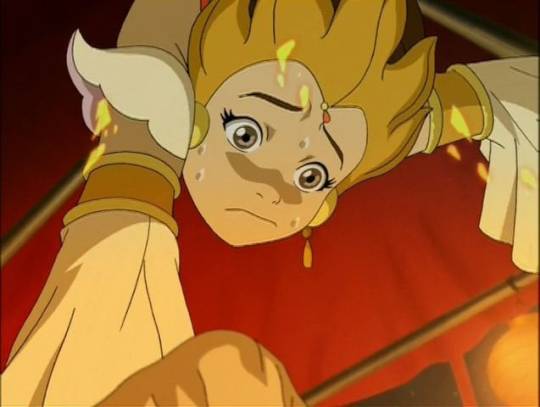
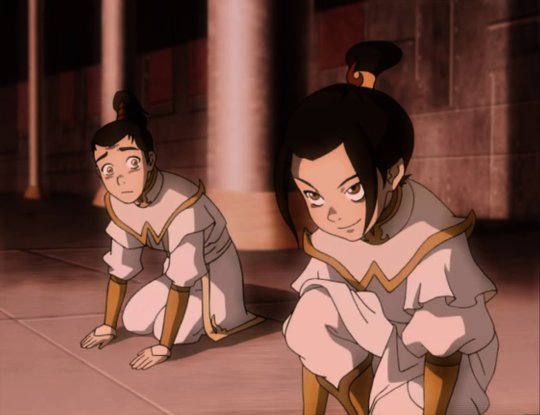

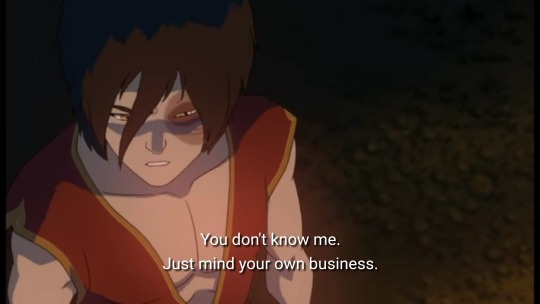
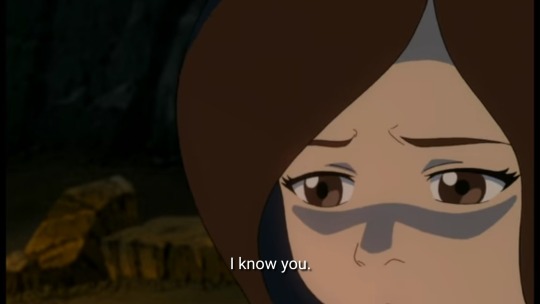
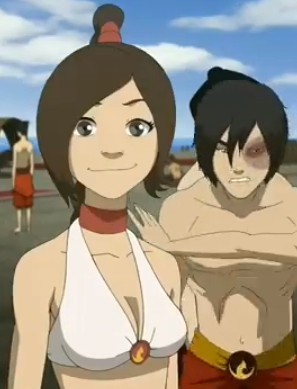
This is the time he ever sees Ty Lee interact with another guy onscreen and he immediately got pissed when they said they were inviting her to a party but not him.'I just realized she be looking at other guys y'all i can't breath' ass lmfao(Also not canon but you can't tell me Ty Lee isn't Air Nomad mixed and a sweet tooth to Zuko's spice addict c'mon)
#anti zutara#ty luko#t4t ty luko#pro ty luko#zuko#ty lee#katara#pro kataang#not anti maiko i just prefer lesbian mai(though they are not exclusive sonce i also frequently headcanon zuko as transfem)#punk katara#autistic zuko#transmasc zuko#trans ty lee#autistic ty lee#dadko#gaang member ty lee#atla geekery#💌#also:#perlex#summerposting
61 notes
·
View notes